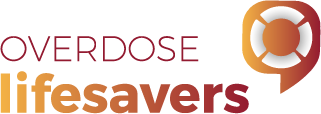
Skye-Lee overdoses at home and has a distressing encounter with emergency services
Preferred Name: Skye-Lee
Gender: Female
Age: Early 30s
Who is Skye-Lee?
Skye-Lee lives in Wollongong but was living in a residential drug rehabilitation service at the time of the interview. She describes her ethnic background as ‘Aboriginal’: like both her parents, Skye-Lee was born in Australia. Skye-Lee describes herself as a ‘full-time mum’ to her three children. She does not have any experience with take-home naloxone but likened it to doing first-aid training.
Brief Outline:
Skye-Lee describes the most recent occasion when she overdosed. Prior to entering rehabilitation this year, she overdosed many times, and recalls ‘really rude’ and disrespectful treatment from paramedics and police officers who came to her aid. She has also been present twice when other people have overdosed. Recognising that ‘people who have addictions [are] still human’, she would like to do overdose response training so she could help should she come across someone experiencing an overdose again.
Earlier this year, I was overdosing a lot, mainly from fentanyl patches – they’re lethal. The last time, I was at the top of my staircase and I woke up with four ambulance paramedics standing over me and police coming up the stairs, and I was freaking out. I’ve had Narcan once before, but I have no memory of what it was like this time. I can only remember wondering, ‘Did I die? I died?’ There is nothing worse than not being in control of your own mind and body.
As the police were leaving afterwards, one said to his partner something about me being an ‘oxygen thief’. I was still out of it, but I knew what was being said. I don’t like the way most people get looked at and treated by paramedics and police officers. If someone overdoses, they should be treated the same way as someone having a heart attack. People don’t overdose on purpose; they’ve got a problem.
Noting that she would like to be able to help others experiencing overdose, Skye-Lee discussed wanting to do overdose response training. ‘It’s like doing your first aid, because people who have addictions, they’re still human […] and they’ve got a problem, and if you’ve got the skills to help them, then why not? You could be saving a life.’
I got my opioid habit after I had a bad car accident in my early 20s. I nearly died and was hospitalised for three months, getting pumped with morphine every day. I left hospital with a script for Panadeine Forte and what I thought was a bad cold. I thought I’d gotten really sick from the hospital, but it turned out I was withdrawing from the morphine. That’s when I started with opiates.
Earlier this year, I was overdosing a lot, mainly from fentanyl patches – they’re lethal. The last time, I was at the top of my staircase and I woke up with four ambulance paramedics standing over me and police coming up the stairs, and I was freaking out. I’ve had Narcan once before, but I have no memory of what it was like this time. I can only remember wondering, ‘Did I die? I died?’ There is nothing worse than not being in control of your own mind and body.
As the police were leaving afterwards, one said to his partner something about me being an ‘oxygen thief’. I was still out of it, but I knew what was being said. I don’t like the way most people get looked at and treated by paramedics and police officers. If someone overdoses, they should be treated the same way as someone having a heart attack. People don’t overdose on purpose; they’ve got a problem.
Many participants described encounters with police. Skye-Lee (F, early 30s, NSW, non-prescribed opioids) recounts a time she was insulted by a police officer who arrived when she overdosed.
They could be a bit nicer. It’s their job to save people, you know, and [drug use is] a part of life. I don’t like the way that people get looked at and treated by most paramedics and police officers, because they come a lot too and they’re nasty. You know, the last time [an overdose] happened to me, one of the police officers called me an oxygen thief. As he was walking out, he said to his partner, or whatever, something about an oxygen thief and it wasn’t very nice. And I was still out of it, but I knew it was being said. It wasn’t nice at all, and I don’t think people need to be treated that way. I think it’s really rude, you know.
For Skye-Lee (F, early 30s, NSW, non-prescribed opioids), who consumes heroin, the issue of overdose is intertwined with human rights. She argues that overdoses should be addressed in the same way as other health emergencies.
Say someone overdoses, they should be treated in the same way as someone having a heart attack. You know, we have human rights. People don’t do it on purpose – they use, but they don’t overdose on purpose. They’ve got a problem [but] it’s not anyone’s business whether they’re trying to [get treatment] or not. [If] they overdosed, [any witness] has a duty of care and he or she needs to follow through and not disrespect the person. [That’s what] I believe anyway. There should be a law against [walking away].
Challenging the stigmatisation of people who consume drugs, Skye-Lee (F, early 30s, NSW, non-prescribed opioids) says take-home naloxone is a ‘useful’ way of helping others and saving lives.
I think [take-home naloxone] would be useful, especially with […] the group of people that […] are in my life. […] I could be walking down the street and [an overdose] could happen, and if you know that you’ve got the skills to help somebody, rather than let them die or get hurt, wouldn’t you want to help them? You know what I mean? I’m not saying I want to be a doctor or anything, but yeah […] It’s like doing your first aid. Because people who have addictions, they’re still human, and just because some people might look at a girl on a heroin overdose as [though she] might deserve it, I don’t agree with that. They’re still human and they’ve got a problem, and if you’ve got skills to help them, then why not? You could be saving a life.

